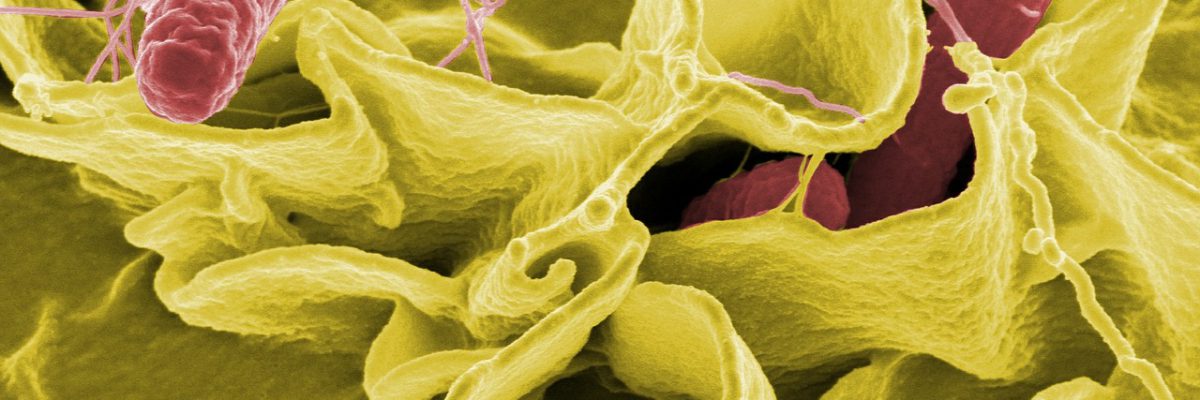Both bacteria and viruses can cause infection and illness what are their differences?
Bacterium is a single-cell living organism. The human body actually has more bacteria then cells. There are “good bacteria” beneficial to the body, and there are “bad bacteria” that harm the body and cause infections. For example, pneumonia is a disease caused by bacteria (or viruses) that damage lung vesicles, the area where oxygen transfers from the lungs to the blood. Antibiotics are an effective method to eliminate bacteria. Antibiotics are materials composed of molecules, which can either kill the bacterium or prevent it from growing. The source of antibiotics is a fungus, which as part of its development creates a molecule that harms their growth. The fungus kills the bacteria and develops where they had been growing. It is in fact biological warfare due to competition for resources where the fungus has found a method to eliminate the bacterium.
Viruses, on the other hand, are not living organisms, they require live hosts in order to multiply. The virus is a small body made up of proteins and hereditary material. The virus attaches itself to living cell, inserts its genetic material and thus reprograms the cell to make additional copies of itself. Today there are no effective drugs to treat viral diseases. Antibiotics is not an effective solution as it inhibits certain reproduction processes in the bacterial cells. The virus takes advantage of the mechanisms in the host cell so antibiotics would need to inhibit our cells in order to harm the virus, not an effective solution.
For Example, a virus can be a cause for cancer because it inserts its genetic material into our genome to reproduce itself. If a gene responsible for controlling the reproduction of a cell is damaged at the time of virus penetration, it may cause the cell to begin dividing without control – thus making it a cancerous cell. Just to be clear, not every virus can cause cancer, for example, the virus that causes influenza (flu) cannot produce cancer cells.
The main weapon we can use against viruses is vaccines. That is using our own immune systems to battle the viral invasion and acquire active immunity from the viral invader. Vaccines are agents containing weakened and controlled viral infection inserted into the host body. When injected into the body, the body recognizes a threat and produces antibodies against the virus. The first vaccines were discovered by chance in the 18th century when doctors noticed that milkmen were less sick when exposed to smallpox. This happened because the milkmen had been exposed to a similar cattle version of the disease and developed immunity to it. It is true that even without prior vaccinations, when a body is infected by a virus it may be able to produce the antibodies needed to drive off the virus. However, such an infection would not be a weakened one meaning that the body may not be able to react quickly and efficiently. So, the question is whether the body could survive such an infection in a timely manner.
This article was edited by Tammy Kaplan Zabari.







